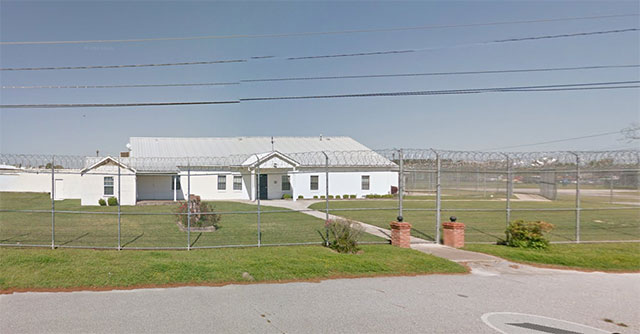

Decatur County Prison Warden Elijah McCoy plans to return approximately 90-100 inmates his facility is housing for the State of Georgia by June 1, he told county commissioners on Tuesday.
Warden McCoy said the prison loses money housing state inmates and will return most of the ones in custody at the Decatur County Jail as a cost-savings measure. County commissioners learned earlier this year the prison was operating at an annual loss in excess of $2 million per year.
In addition, Warden McCoy plans to let go 10 of his guard staff by no later than June 30, another cost-savings measure in light of the reduced inmate population. The warden said he notified his staff Tuesday morning that he would make the selection of who to retain and who to let go based on job performance and attendance. He said he is already reaching out to other county department heads in an effort to place any laid-off employees in a new job, if possible.
“While it’s difficult for me to have to tell those 10 people they will be laid off, in one sense, it will be better to avoid having the prison shut down altogether and all of the guards be laid off,” McCoy said after the meeting.
The Decatur County Prison laid off 4 guards in 2009. McCoy said that despite the “tough decision” to let 10 guards go, the remaining 45 guards (who work in shifts) should not have their workload increased.
After removing 90-100 state inmates, there will still be about 220 inmates being housed at the Decatur County Prison, which has a maximum capacity of over 400 beds. The warden said there will still be a mix of state inmates and local inmates, which are inmates sentenced to confinement on less serious charges, such as violating the terms of their probation.
How the Warden plans to save money
 The main reason Warden McCoy plans to return 90-100 inmates being housed by the State of Georgia is because, according to the warden, the prison actually loses money every day to house those inmates. McCoy said it’s estimated it costs the prison $33 per day, per inmate. The State of Georgia only reimburses Decatur County a rate of $20 per day, per inmate. Therefore, as the warden explained to county commissioners, Decatur County is losing $13 per day for every state inmate it keeps. (There is no state reimbursement for local inmates; the Decatur County Sheriff’s Office shoulders some of that cost out of its budget.)
The main reason Warden McCoy plans to return 90-100 inmates being housed by the State of Georgia is because, according to the warden, the prison actually loses money every day to house those inmates. McCoy said it’s estimated it costs the prison $33 per day, per inmate. The State of Georgia only reimburses Decatur County a rate of $20 per day, per inmate. Therefore, as the warden explained to county commissioners, Decatur County is losing $13 per day for every state inmate it keeps. (There is no state reimbursement for local inmates; the Decatur County Sheriff’s Office shoulders some of that cost out of its budget.)
Sending away 100 inmates could result in a cost savings of $475,000, although that would also mean a reduction in revenue from the state reimbursements. Warden McCoy also pointed out he expects to reduce his overall annual costs to feed and clothe inmates, since there will be fewer of them.
“My goal is to put every inmate we house out on a work detail every day, with the exception of laundry and kitchen staff,” Warden McCoy said.
Currently, an average of about 150 inmates go out on weekday work details, supervised by a salary guard. The warden hopes to send out 175-200 out on work detail in the future. Doing so could help pay for inmate housing costs, since several Southwest Georgia local governments–including the City of Bainbridge–contract with the prison for inmate labor.
Warden McCoy said there are some state inmates that have “holds” on them that for whatever reason, state they can’t go out on work details. He said he is going to try and include the inmates who can’t go out on work details among the 100 inmates he sends back to a state-run prison.
Warden McCoy also says he is taking a close look at the inmate labor contracts the prison has with local governments, to assess how much it costs the county to provide inmate labor. McCoy told commissioners he would bring back proposals for re-negotiating those contracts at a later date.





Be the first to comment